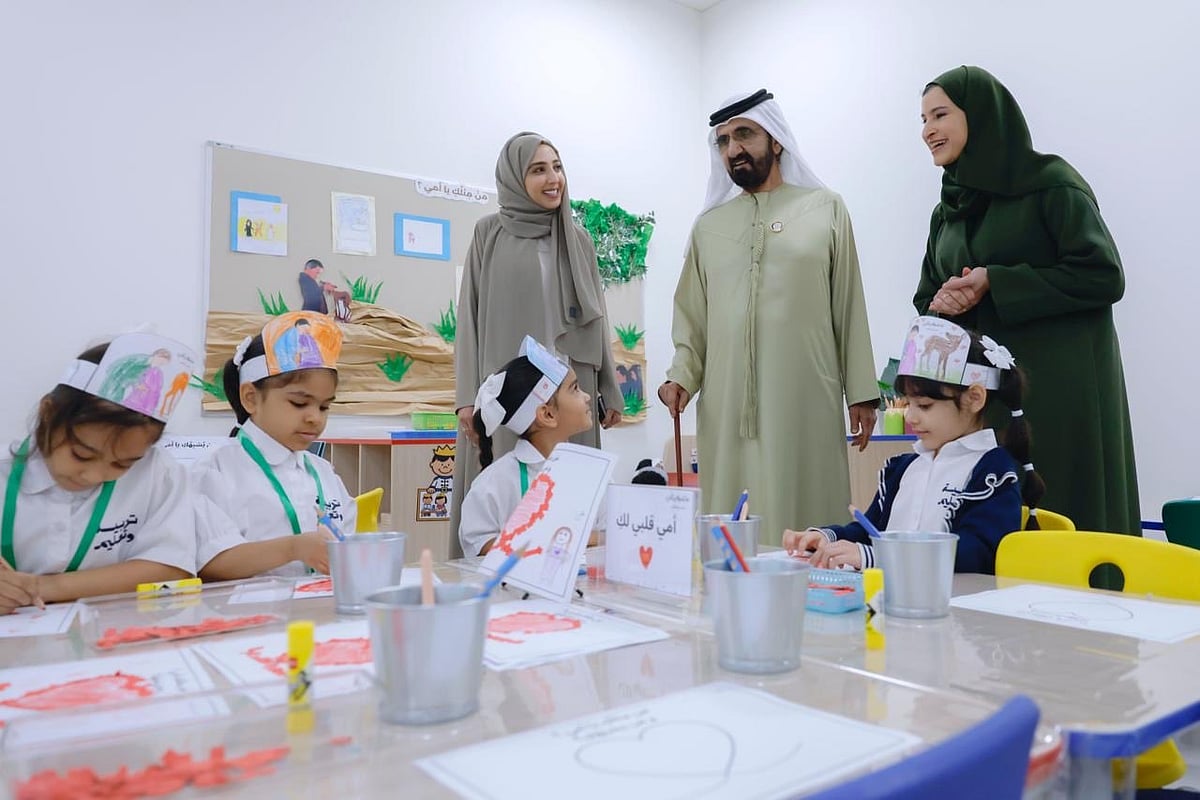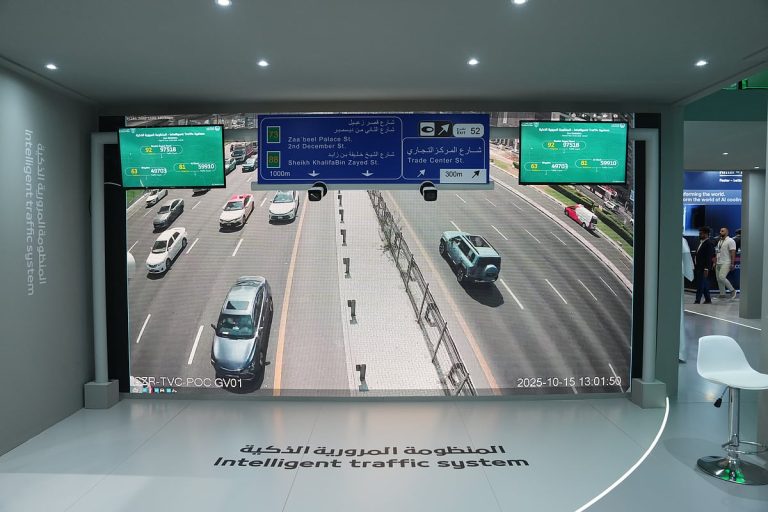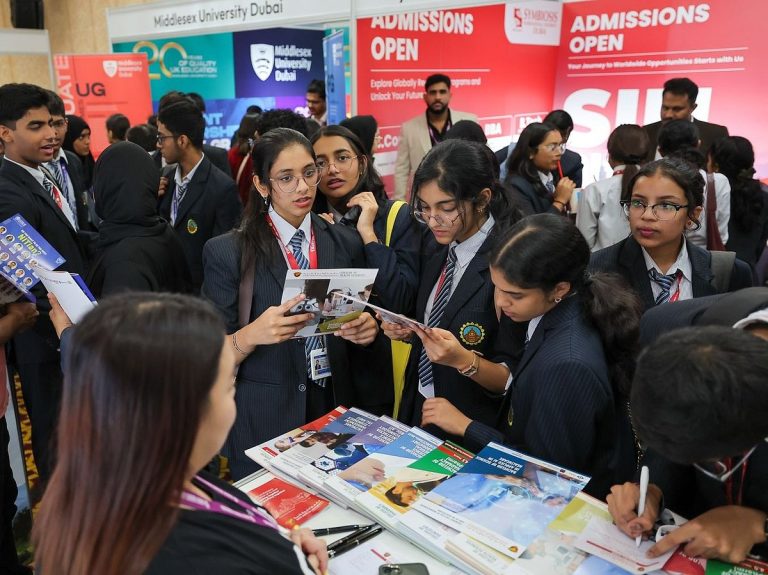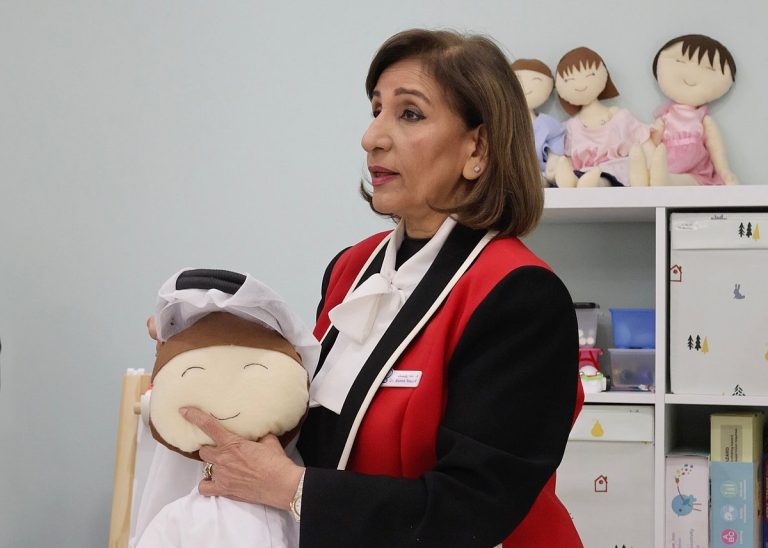Sheikh Mohammed Advocates for Education’s Role in Leadership
Sheikh Mohammed bin Rashid Al Maktoum, the Vice President and Prime Minister of the UAE, recently emphasized the importance of a comprehensive educational framework in nurturing future generations. During a visit to the Zayed Educational Complex in Al Warqa, he outlined how national identity, sports, and economic awareness are vital components of modern education.
The Importance of National Identity and Sports
In his remarks, Sheikh Mohammed pointed out that integrating national identity into the school day is crucial for fostering a sense of belonging among students. He believes that sports activities enhance students’ quality of life, promoting teamwork and physical well-being. These elements are essential for developing well-rounded individuals who are prepared to face future challenges.
Creativity and Economic Awareness
Sheikh Mohammed also highlighted the significance of creativity in education. He stated that engaging students in reading, writing, and the arts helps build their character and critical thinking skills. Furthermore, he stressed that understanding economic principles should be part of extracurricular activities, equipping students with the knowledge needed to navigate the complexities of modern life.
Leadership in Education
The Vice President praised the leadership of Sheikh Abdullah bin Zayed Al Nahyan and Sheikha Mariam bint Mohammed bin Zayed Al Nahyan, who are instrumental in transforming the education sector. Their efforts are aimed at creating a positive shift that will benefit students and the nation in the long run.
FAQs
What did Sheikh Mohammed emphasize about national identity in schools?
Sheikh Mohammed stressed that national identity should be integrated into the school day to foster a sense of belonging among students.
How does Sheikh Mohammed view the role of creativity in education?
He believes that creativity in reading, writing, and the arts is essential for building students’ character and enhancing their critical thinking skills.
Who are the key figures mentioned in Sheikh Mohammed’s remarks on education?
Sheikh Abdullah bin Zayed Al Nahyan and Sheikha Mariam bint Mohammed bin Zayed Al Nahyan were highlighted for their leadership in driving positive changes in the education sector.
Conclusion
Sheikh Mohammed’s insights underscore the importance of a well-rounded educational experience that prepares students for future leadership roles. By focusing on national identity, creativity, and economic awareness, the UAE aims to cultivate a generation that is not only knowledgeable but also deeply connected to their heritage. The ongoing efforts in the education sector promise to yield significant benefits for the nation in the years to come.
Sheikh Mohammed’s advocacy for a robust educational framework reflects a broader trend in the UAE’s approach to national development. The country has invested significantly in its education sector over the past few decades, recognizing that a well-educated populace is essential for economic diversification and sustainable growth. The UAE’s Vision 2021 and subsequent initiatives aim to enhance educational quality and accessibility, ensuring that students are equipped with the skills necessary to thrive in a rapidly changing global landscape.
The emphasis on national identity in education is particularly relevant in the context of the UAE’s multicultural society. With a diverse population comprising expatriates from various backgrounds, fostering a strong sense of national identity can help unify students and promote social cohesion. By integrating cultural education into the curriculum, schools can instill pride in the UAE’s heritage while also encouraging respect for different cultures, preparing students to be global citizens.
Moreover, Sheikh Mohammed’s focus on creativity and economic awareness aligns with the UAE’s strategic goals to cultivate innovation and entrepreneurship. As the nation seeks to transition from an oil-dependent economy to one driven by knowledge and technology, educational institutions are being called upon to nurture critical thinking and problem-solving skills. This shift not only prepares students for future careers but also positions the UAE as a competitive player in the global economy, capable of attracting talent and investment in various sectors. The ongoing reforms in education are thus seen as pivotal in shaping a resilient and adaptable workforce for the future.
Also Read:
Antidepressant Side Effects: Insights from UAE Experts







